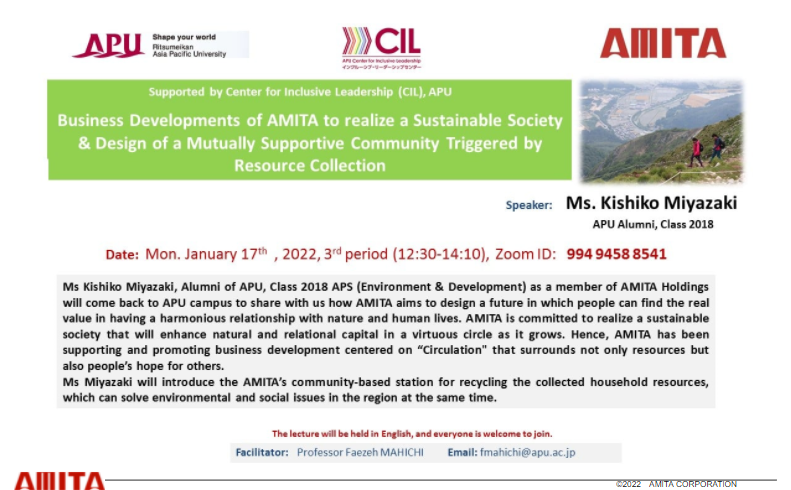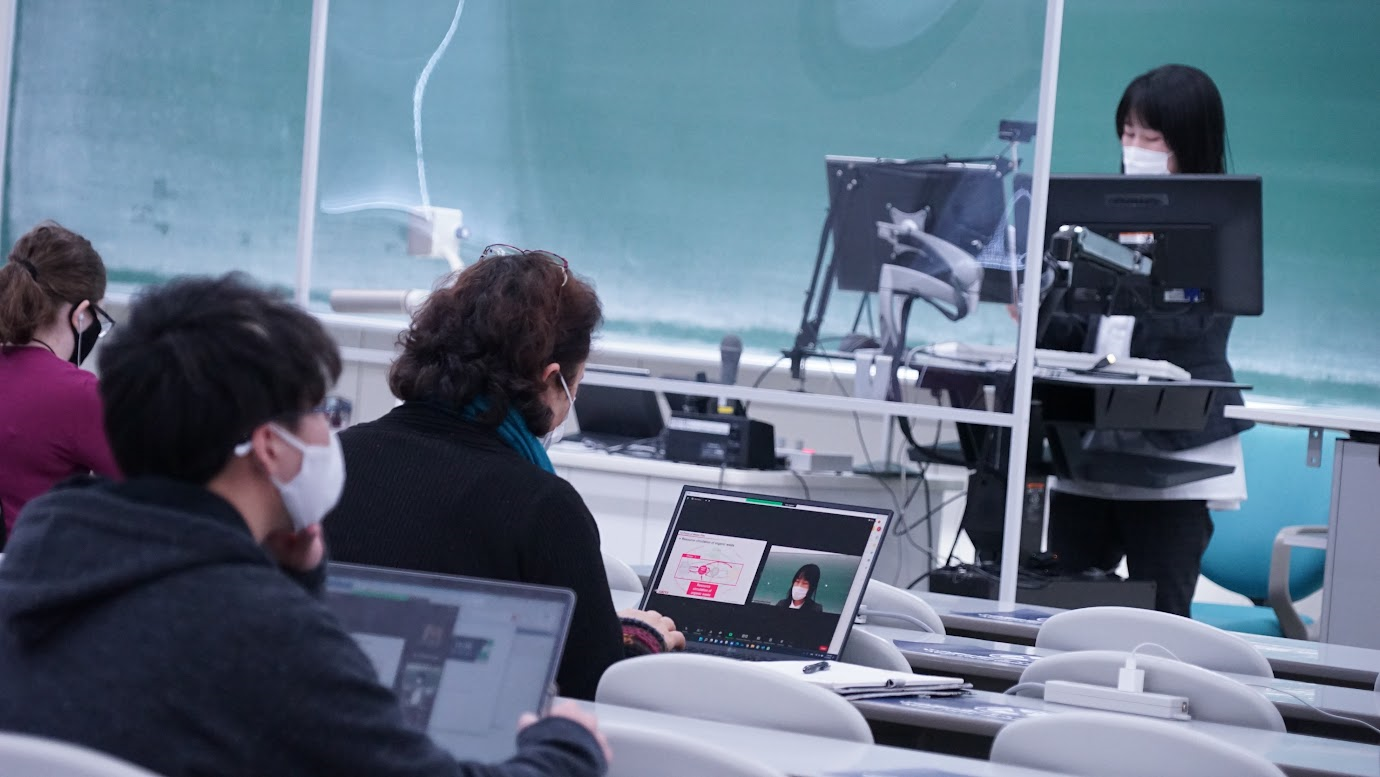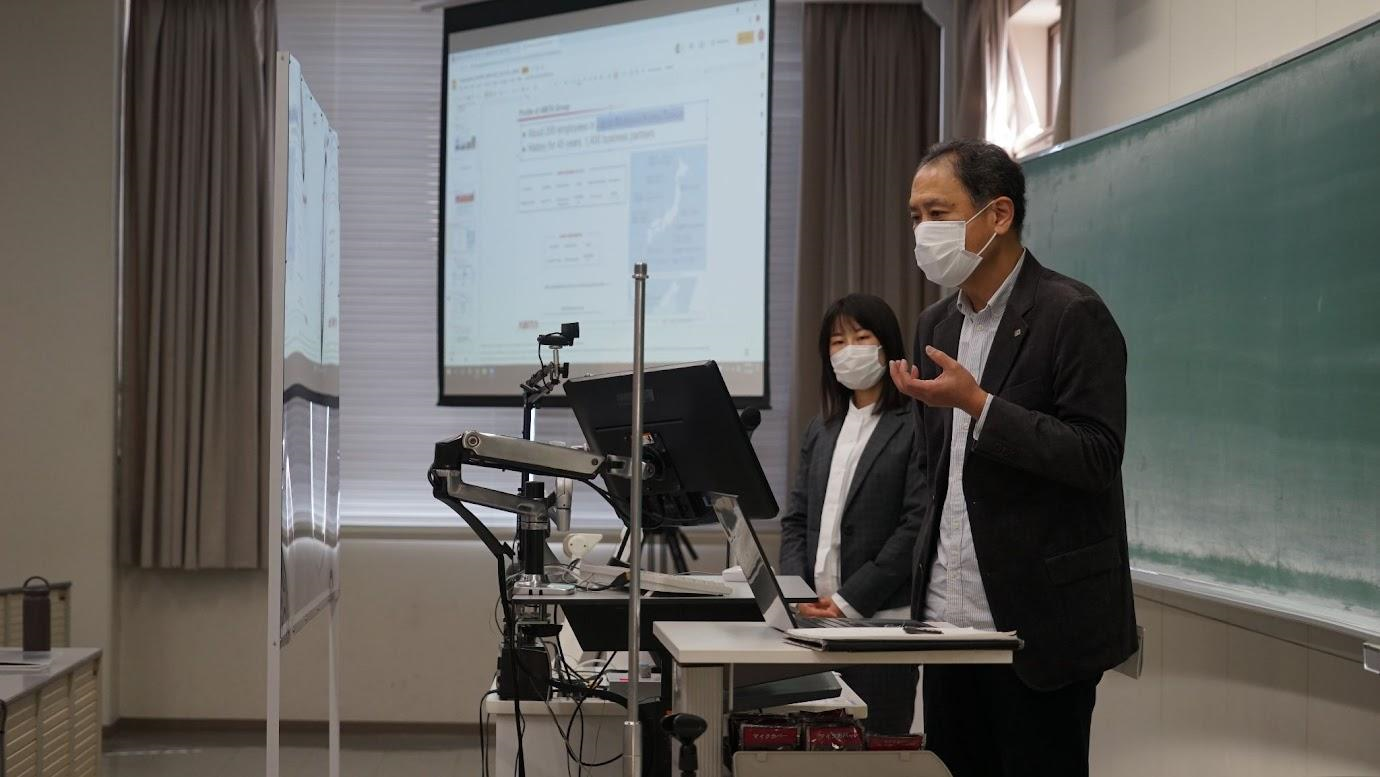Associate Professor MAHICHI Faezeh who is a CIL Research Member held a guest lecture entitled “Business Developments of AMITA to realize a Sustainable Society & Design of a Mutually Supportive Community Triggered by Resource Collection” with the APU Alumni of 2018, speaker Ms. Kishiko Miyazaki who works at AMITA HOLDINGS CO., LTD (https://en.amita-hd.co.jp/).
Learn more about the research.

Guest lecture: Living harmoniously with nature and human lives.
As a part of the CIL research with Associate Professor MAHICHI Faezeh as principal investigator, examining the potentials and challenges of grassroots activism as a pedagogical framework for implementing inclusive sustainable development in societies, locally, regionally and globally.
On February 15th, 2022, Ms. Kishiko Miyazaki delivered a hybrid lecture to APU students in Biodiversity course about the social systems design business company, AMITA holdings and the sustainable business model that is practiced at the company such as business designs, vision, goals, styles, and main services.

Screenshot of Hybrid Class with Ms. Kishiko Miyazaki presenting at APU
Ms. Miyazaki explained AMITA’s mission to design a sustainable society by providing the four social design business concepts that includes 1) providing solutions to social issues, 2) enriching natural capital and human capital, 3) social technology that combines software and hardware and, 4) circulation of diverse waste materials from industrial sites, farms, urban areas and so on, as resources. With 200 employees in Japan, Malaysia, Korea and Taiwan, AMITA has gained 1400 business partners in 45 years and emphasizes the key around sustainable community management in the new era and the integration of circulation into the social design businesses. Students were then grouped to explore their ideal sustainable city in detail from what it would look like, the citizens' lifestyles within, how the area could sustain itself and more. The lecture returned back to two successful AMITA case studies that were presented to the students.
The first case study was the “Comprehensive Cyclical System Utilizing Negative Resources & Designing of a mutually supportive community driven by resource collection in Minamisanriku-cho” that looked into the Regional Design Service, Sustainable Circulation Vision, and various Environmental Certifications such as forestry and fishery to stimulate local economy.
This base realized the potential regional resource circulation of organic waste that created the pilot project for biogas due to the three pillars
1) economically, biogas facilities affordability in comparison to an incinerator, and the application of liquid fertilizer over an effluent treatment,
2) environmentally, risking less odor pollution and harmful materials, as well as efficiently recycling wet food or human waste,
and 3) socially, garbage separation raising environmental awareness.
The next phase of this project built the Meguru-Station, which translates to “circulation-station”, to promote recycling and reuse by separating waste into smaller categories and encouraging residents to take initiatives and bringing the trash in themselves.
The Meguru-Station aimed to grow a mutually supportive community driven by resource collection with the three main objectives,
a) to promote further recycling and reuse of waste,
b) to reduce additional cost for waste collection and,
c) the interaction among inhabitants of such community space.
The second case study was “designing of a mutually supportive community driven by resource collection in Nagata-ku, Kobe city” in which an intergenerational recovering resource collection station was built by Junior High School students to 90-year-old locals.
The community members instantly created friendships from the multi-generational exchange, through crafting resource materials, writing warm thank you notes for each other or communicating over coffee at their unique cafe room.
The presentation entered the 30-min Q&A session where Ms. Miyazaki and AMITA’s Managing Director Mr. Shinichi Karakama answered several questions and expanded the discussion around AMITA’s projects and services. Finally, the students were assigned as their final group project to come up with a Sustainable Beppu based on “AMITA’s Sustainable Society Model”.
As with most collaborations we hope that the talk of Ms. Miyazaki as Alumni of APU enhances the learning experience for the students and builds trust and cooperation with the community in Oita, in Japan and globally.

Screenshot of Online Lecture with Ms. Kishiko Miyazaki (left) and
Managing Director Mr. Shinichi Karakama (right)
Sources
1.Organical Facebook: https://www.facebook.com/OrganiCal-Organic-LoCal-104913145174102
2.AMITA: https://en.amita-hd.co.jp/
Report by: Minami Teramae, Supervised by Associate Professor Faezeh Mahichi
Acknowledgements: Ms. Motoko Saito (translation), Associate Professor Peter Roux (EDLSC)



